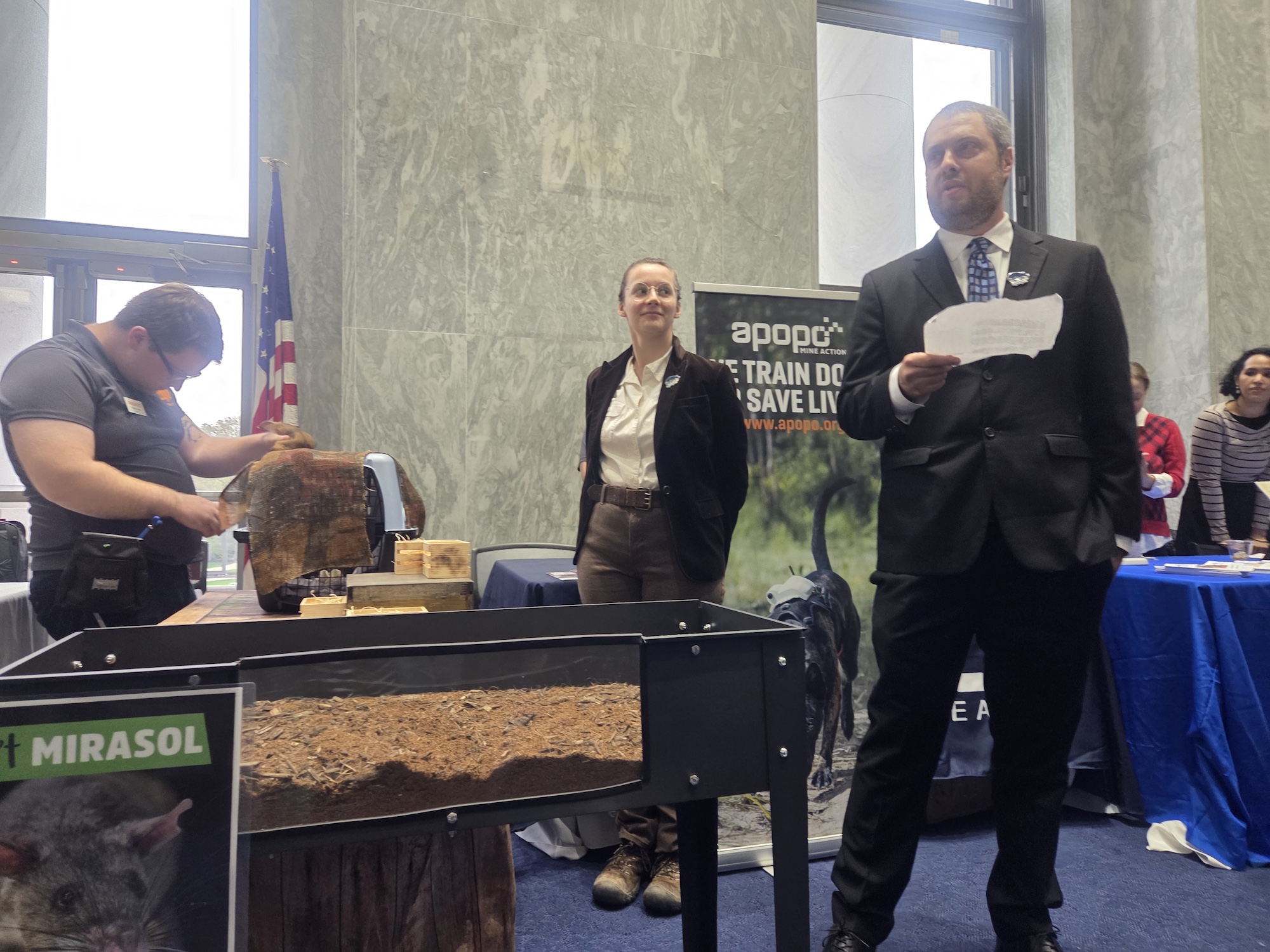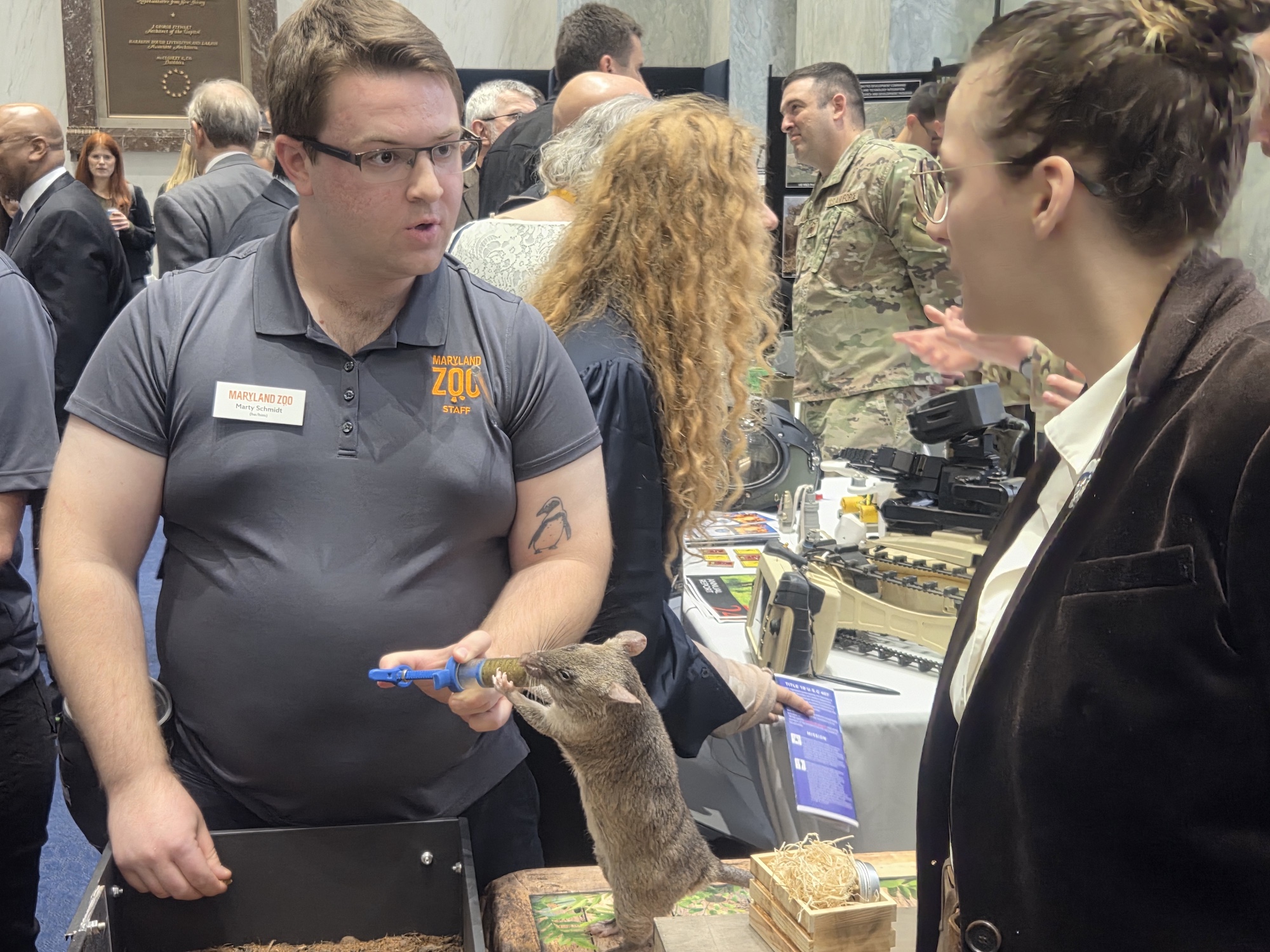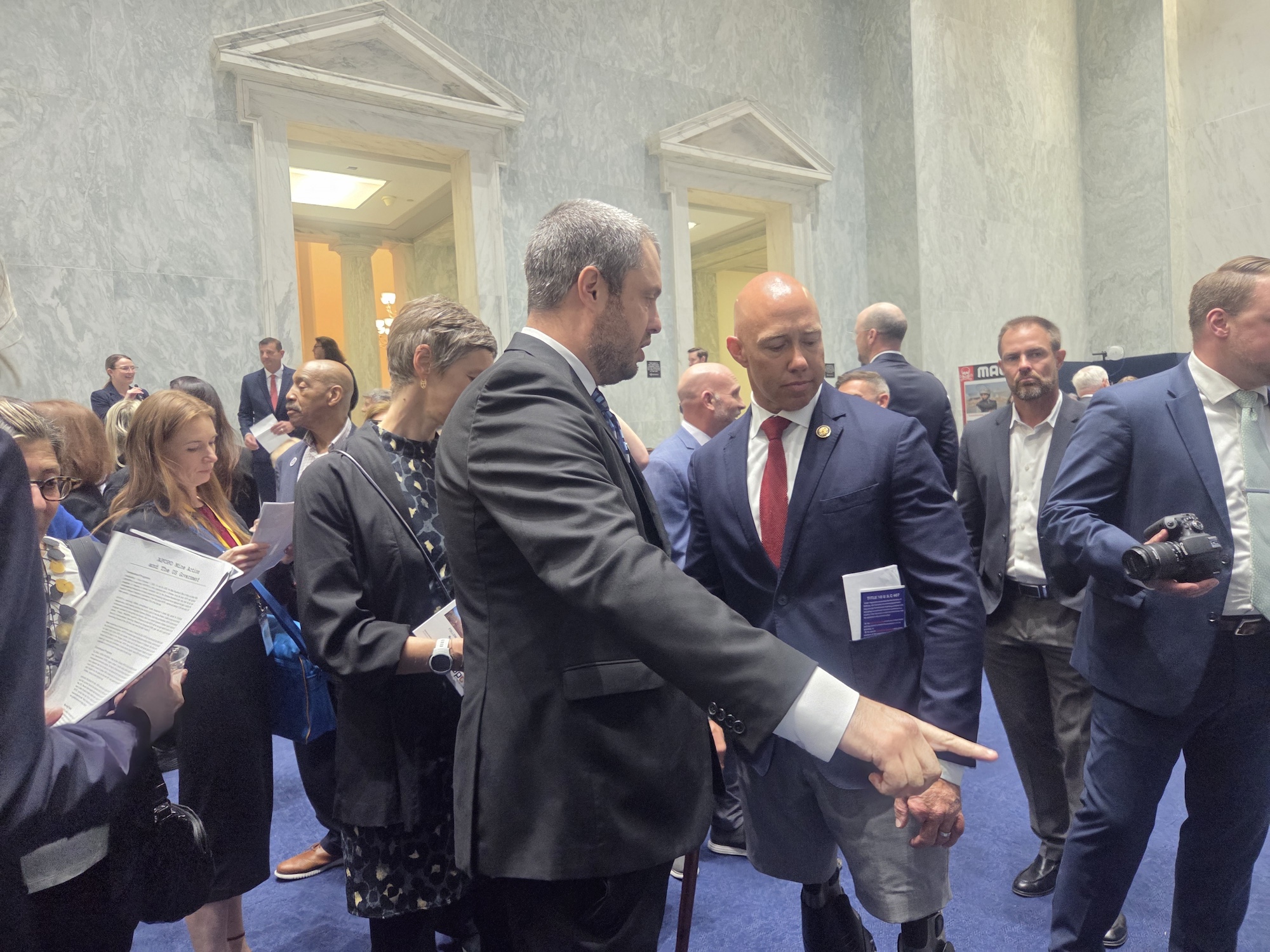On April 7, 2025, APOPO was proud to participate in the Congressional Unexploded Ordnance/Demining Caucus’s exhibition and reception in honor of International Mine Awareness Day. Held at the Rayburn House Office Building in Washington, D.C., the event spotlighted global efforts to eliminate landmines and highlighted the vital role the United States plays in supporting humanitarian demining.
APOPO’s Innovative Approach to Landmine Detection

Our U.S. Director, Charlie Richter, joined a distinguished lineup of speakers, including Representatives Chrissy Houlahan and David Valadao, and House Foreign Affairs Committee Chairman Brian Mast. Charlie spoke about APOPO’s unique contribution to global demining through our innovative use of animal detection technology — most famously, our Mine Detection Rats (HeroRATs).
“At APOPO, we strive to be developers and implementers of landmine detection innovations,” Charlie said. “Our most well-known innovation is the Mine Detection Rat — and no, they don’t explode. They’re far too light to trigger landmines, and their safety and welfare are paramount in all we do.”
HeroRAT Mirasol Steals the Show

A major highlight of the evening was a live demonstration by APOPO ambassador HeroRAT Mirasol, who currently resides at the Maryland Zoo. Before an audience of Members of Congress, ambassadors, and international demining experts, Mirasol demonstrated the remarkable detection abilities of our trained African giant pouched rats. Calm, confident, and efficient, she quickly located simulated landmines — drawing smiles, applause, and a fair share of astonished reactions from the crowd.
Mirasol’s appearance was more than a novelty — it was a powerful example of demining innovation in action. Her presence helped humanize the often technical world of humanitarian mine action, making it easier for attendees to understand how animal detection technology can be both highly effective and deeply humane. For many guests, seeing Mirasol at work transformed abstract policy discussions into something immediate and emotionally resonant. She was not only an ambassador for APOPO, but for the millions of people whose lives and livelihoods depend on safe, mine-free land.
Reflecting on a Landmark Program in Zimbabwe
The event also served as a timely moment to reflect on both accomplishments and challenges. APOPO recently concluded a U.S. State Department-funded clearance operation in Zimbabwe that, between October 2021 and January 2025, unearthed and destroyed 17,206 landmines along a 26 km corridor near the Mozambique and South Africa borders. This work protected vulnerable communities, supported the safe movement of endangered species like African elephants, and boosted regional eco-tourism.
However, following the end of funding in February, APOPO began winding down its Zimbabwe program, which included the difficult step of terminating employment for 73 local team members. Critical clearance in the Sengwe Corridor was halted, with no immediate successor organization able to continue this life-saving work.
Strengthening Global Impact Through U.S. Partnerships
While our Zimbabwe operations come to a close, APOPO’s partnerships with the U.S. government remain strong. Our ongoing collaboration with the U.S. Army’s Humanitarian Demining Research and Development (HDRD) program continues in Cambodia, developing innovative information management systems and contributing data to improve detection tools across global operations.
Meanwhile, in Ukraine, APOPO has teamed up with Mines Advisory Group (MAG) to deploy Technical Survey Dogs (TSD) in regions where agriculture and economic activity urgently need to resume. Our TSD teams are a highly efficient tool for defining the boundaries of suspected minefields and speeding up land release.
Building on Shared Successes in Mine Action
As we look to the future, APOPO is committed to working with PM/WRA and HDRD to advance cost-effective, scalable solutions to landmine clearance. Whether it’s in Southeast Asia, sub-Saharan Africa, or conflict-affected areas in Eastern Europe, our Mine Detection Rats and Technical Survey Dogs are helping communities reclaim their land and rebuild their lives.

